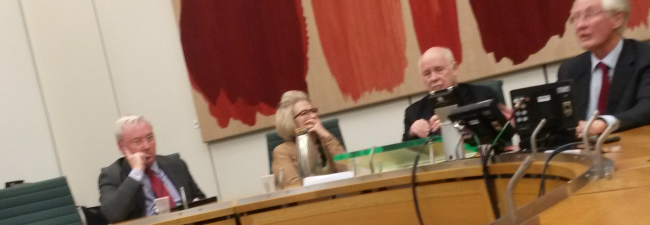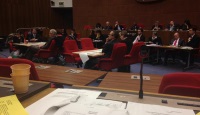Popped into NX Learning to join in with the Labour Party’s Deptford campaign launch; well summarised by Brenda Dacres here… …
Labour Doorstep
I spent the afternoon on the doorstep as part of the team launching Deptford Labour Pat’s general election campaign. I have worked this area before; I can never read this part of the constituency, socially it should be Labour but its often quiet and much of my experience from previous campaigns is in different classes of area. …
More reasons to be doubtfull

I had reason to read the Register’s front page this morning and came across these three IT Security and e-voting gems. Firstly the New Zealand Government uses NSA surveillance tools to spy on the a number of APAC governments to help in their campaign to win one of the World Trade Organisation’s elected positions. Secondly the Australian ivote’s practice system has been compromised in such a way that cast votes can be infected. This project was lead by Vannesa Teague and Alex Halderman; Teague has previously spoken of the inherent weakness of [ei]-voting., not a fan it would seem. And thirdly, CISCO’s CTO gives up on security, or at leas that’s what the Register reports as a headline; the comments by Hartman, CISCO’s CTO are more nuanced but he definitely proposes that devices cannot be secure, and need to be monitored against change and current and future threats, and how do you do that in the home. …
Labour & Digital
Trefor Davies of trefor.net commissioned and published an article by me on the state of the politics of digital and its likely impact on the General Election. In the article I classify the issues around citizenship and economics. Obviously the manifesto has not been published and so prediction of its content is not easy. Regular readers will know that I am a supporter of both the Open Rights Group and Privacy International. I have also served on NESSI, the EU’s internet/I.T. R&D project incubator. I am hopeful on the issues of citizenship, unsure on copyright and intellectual property laws and expect a good offer on digital government. …
The State we need

Michael Meacher convened a meeting to launch his anthology, “The State we need”, the title of which is a play on words on Wlll Hutton’s “The State we’re in”. The launch was held in Portcullis House. The speakers were, Meacher himself, Kelvin Hopkins, John Mills , Anne Pettifor and Richard Murphy. …
Don’t lose your vote!

Don’ t lose your vote, you need to apply in advance, before the 20th April and they’ve changed the law; you have to apply for yourself. Here is the Government site that allows you to do so. …
The EU D.P. Regulations falls at the hurdle

Glynn Moody, of course, at TechDirt, syndicates the EDRi scoop about the final stages of the new EU Data Protection Regulation exposing the National Governments’ role in weakening the current legislation which have completed their 1st & 2nd stages. The EDRI have published a document called “Broken Badly” which contains their critique of the Council’s behaviour and positions because they weaken the rules around consent (both authorisation and purpose), corporate sanctions, duty to notify breaches, and the problematic one stop shop for jurisdiction. Correspondence to Chris Grayling I suppose. …
Making a Budget
A storify on Lwisham’s first post election budget meeting.
This is hosts a storify story and is published as at the date created. …
On the economics of copyright

When looking at the furore surrounding Julia Reda’s report to the European Parliament’s JURI committee, I am coming to the conclusion that those of us who argue for a fairer, more pro-consumer copyright settlement have won the economic arguments. The massive focus on the tiny change in duration reinforces this. All arguments I have had recently with proponents of the current settlement have rapidly moved from public good arguments to the issue of equity in investment, and the moral failure to compensate creators for their speculative investment. …
Lewisham Labour keeps its promises, as well is it can

Yesterday, Lewisham Council at its Budget Setting meeting, agreed a legal budget. While this involves reducing expenditure in some areas because of Tory central government grant cuts, the Labour Council kept its key manifesto promises, to freeze the Council Tax, sustain the living wage & build new houses. I made a storify from tweets and blogs from the Mayor and councillors. which tells part of the story. John Coughlin, the sole Green Councillor allowed himself the luxury of voting …